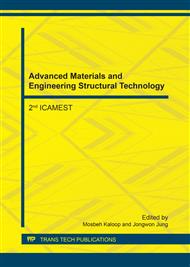p.324
p.330
p.336
p.341
p.346
p.351
p.357
p.363
p.369
Construction Scope: Quality, Budget and Timeline ‘Small’ Endeavours, Portuguese Context
Abstract:
The trinomial of the scope, quality, budget and timeline, is an objective by excellence, pursued by those with an active role in the production process, to which the construction sector is no stranger. The ideal is to ensure the satisfaction of the three parameters/variables, by those who seek construction services: Project Owner. Why the Scope is not reached! The causes are divided in two levels: insufficient training, rooted in the Sector, that favours informality; and, lack of data to understand the causes, resulting in no definition or application of corrective measures (good practices guides). The focus of this article is the 'small endeavours', managed by: (1) Real Estate Developer, in control of the different phases, from municipal licensing, through the project and construction license, the remaining will be undertaken by a Builder or Investor, for subsequent sale; or (future) Owner without control of the initial decisions; the concerns of the latter are bound by the binomial Timeline and Budget; or, (2) P.O., from the outset, take control of all phases, always faithful to his idea of the Scope; introduces adjustments and changes defending his point of view or interest without the perception of the real impact of those on the overall satisfaction, focused on the fulfilment of quality achieved.
Info:
Periodical:
Pages:
369-377
DOI:
Citation:
Online since:
April 2017
Authors:
Keywords:
Price:
Сopyright:
© 2017 Trans Tech Publications Ltd. All Rights Reserved
Share:
Citation:


